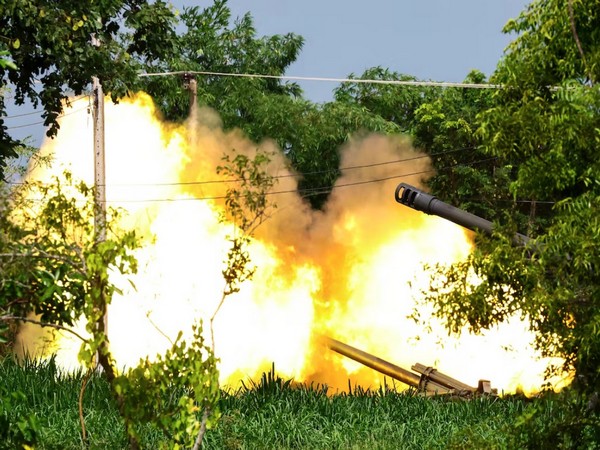
Phnom Penh: Both Cambodia and Thailand have written to the United Nations Security Council (UNSC) following two days of cross-border fighting, local media in both the Southeast Asian countries reported on Saturday. The 15-member UN body has scheduled an emergency meeting for Saturday to discuss the issue.
While Thailand says the clashes began on Thursday with Cambodia's military deploying drones to conduct surveillance of Thai troops near the border, Cambodia says Thai soldiers initiated the conflict when they violated a prior agreement.
The UNSC said that it will hold an urgent private meeting under the "Threats to international peace and security" agenda item to discuss the clashes following a request from Cambodian Prime Minister Hun Manet, in response to the border clashes that began on July 24. Both Thailand and Cambodia are expected to participate in the meeting under rule 37 of the Council's provisional rules of procedure, the UN body said.
Cambodia has alleged that Thailand launched "unprovoked, premeditated and deliberate attacks on Cambodian positions along the border areas, including Tamone Thom Temple, Ta Krabey Temple and Mom Bei, in the provinces of Preah Vihear and Oddar Meanchey". It also dismissed Thailand's claims about Cambodia's placing of new landmines, arguing that Thai personnel "had deviated from the patrol routes previously coordinated between the two countries and created a new path through Cambodian territories, known to be officially documented mine-fields".
Meanwhile, Thailand has officially submitted a letter to the UNSC, presenting evidence that Cambodia initiated the armed conflict in the latest exchanges of gunfire between the two countries.
The country's Foreign Affairs Ministry spokesperson said on Friday that Thailand has written to the UNSC to clarify the situation and has firmly rejecting Cambodia's accusation that Thailand had violated its sovereignty "This claim is completely contrary to the facts," the spokesperson said as per the Bangkok Post.
Thailand has alleged that the landmines that injured its soldiers on July 16 and July 23 were newly planted. It also maintained that Cambodian soldiers were the first to open fire on July 24, targeting a Thai military base in the Surin Province, after which Cambodia also launched "indiscriminate attacks on Thai territory across four provinces of Buriram, Surin, Si Sa Ket and Ubon Ratchathani".
Cambodian Prime Minister Hun Manet on July 25 in a Facebook post said that Thailand agreed to a ceasefire with Cambodia, starting from midnight on July 24, following a proposal by Malaysian Prime Minister and ASEAN rotating chair Anwar Ibrahim, according to the Phnom Penh Post.
The Cambodian daily cited Hun Manet as saying that "just one hour after the phone conversation with the ASEAN chair, Thailand retracted its position."
Malaysian Prime Minister Anwar Ibrahim, who chairs the Association of South East Asian Nations (ASEAN) had earlier offered to facilitate talks between the two countries.
Thailand has accepted in principle an offer from the ASEAN Chair to mediate the border conflict, but insists Cambodia must first demonstrate a clear commitment to de-escalation according to Thailand's state news broadcaster NBT.
The Thai broadcasting agency also said that the Royal Thai Army has completely rejected Cambodian claims that it used F-16 fighter jets to attack civilian areas in Cambodia, calling the reports as "distorted news."
More than 130,000 people have reportedly been evacuated from conflict areas in Thailand,, according to its health ministry.
The United States, China and Japan have expressed grave concern and urged de-escalation following renewed clashes while France ahs called upon Cambodia and Thailand to immediately stop the clash and solve the dispute through international law.
Cambodia and Thailand have been locked in a decades-long disagreement over the jurisdiction of various non-demarcated areas along their shared land border, which stretches more than 800 kilometres.
A central part of the dispute has been competing claims of ownership of the ancient Hindu temples of Prasat Ta Muen Thom and Preah Vihear, which are perched on the Dangrek Mountains that form a natural border between Cambodia and Thailand.
In 2011, severe clashes between Cambodian and Thai forces in the vicinity of the Preah Vihear temple resulted in at least 16 deaths. This prompted the UN Security Council to meet in a private meeting on February 14 2011 and to issue a press statement on the same day.
In late May, a Cambodian soldier was killed in a brief exchange of gunfire with Thai soldiers at a disputed border area, prompting a diplomatic crisis and the reinforcement of military presence along the border by both sides.
Tensions further heightened because of two incidents, on July16 and July 23, in which Thai soldiers patrolling along the border were injured by landmines. Five Thai soldiers sustained injuries, one of whom lost a leg.
Cambodia and Thailand subsequently recalled their respective ambassadors and closed many border crossings between the countries.